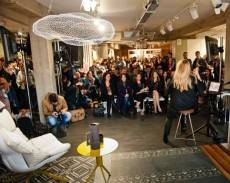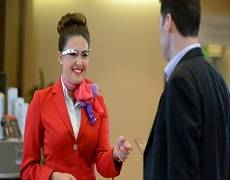March 13, 2014
Insight confirms partnership with Clerkenwell Design Week
 Workplace Insight has confirmed a partnership agreement with Europe’s largest commercial interior design event, Clerkenwell Design Week. The event takes place each year, uniquely using the showrooms and other spaces that make the Clerkenwell area of London home to more creative businesses, designers and architects per square mile than anywhere else on the planet. It is also part of the East London Tech City hub. Now in its fifth year, the 2013 event attracted 50,000 registered attendees and thousands of others visitors. Insight will be covering the event, which will take place from 20 – 22 May, focussing especially on the intellectual content that forms a central element of the week’s content. We will be inviting the many eminent speakers and commentators to share thoughts and ideas in the build up and aftermath.
Workplace Insight has confirmed a partnership agreement with Europe’s largest commercial interior design event, Clerkenwell Design Week. The event takes place each year, uniquely using the showrooms and other spaces that make the Clerkenwell area of London home to more creative businesses, designers and architects per square mile than anywhere else on the planet. It is also part of the East London Tech City hub. Now in its fifth year, the 2013 event attracted 50,000 registered attendees and thousands of others visitors. Insight will be covering the event, which will take place from 20 – 22 May, focussing especially on the intellectual content that forms a central element of the week’s content. We will be inviting the many eminent speakers and commentators to share thoughts and ideas in the build up and aftermath.





















February 25, 2014
Musculoskeletal disorders rate highlights scale of ergonomic challenge
by Sara Bean • Comment, Facilities management, News, Workplace
More working days were lost last year to back, neck and muscle pain than any other cause. The latest figures from the Office of National Statistics (ONS) show that although there has been an overall downward trend in sickness absence in the UK over the last two decades; with 131 million days lost in 2013, down from 178 million days in 1993, at 30.6 million days lost, the greatest number of staff sick days in 2013 were due to musculoskeletal problems. Regulations and guidance relating to ergonomics in the workplace (the Health and Safety (Display Screen Equipment) Regulations 1992), were published over 20 years ago; and despite being amended in 2002, that’s still aeons in technology terms. The typical modern worker now routinely uses tablets, mobiles and other digital devices; whether at work, on the move or at home.
(more…)